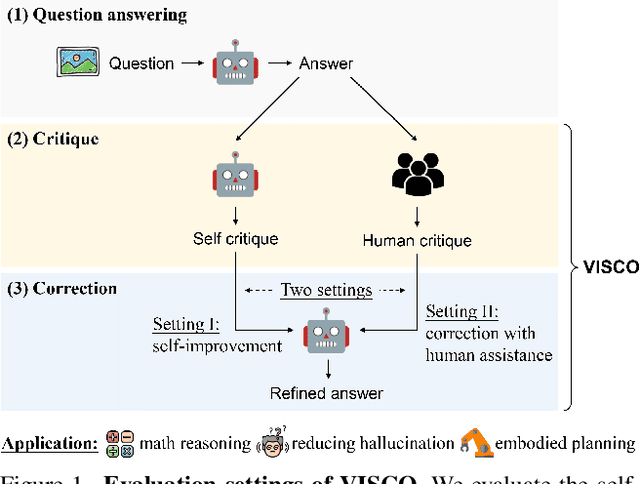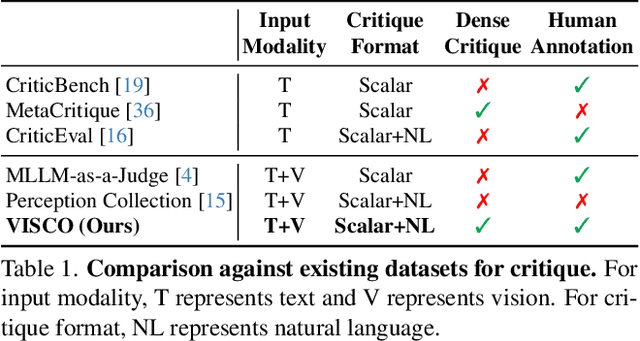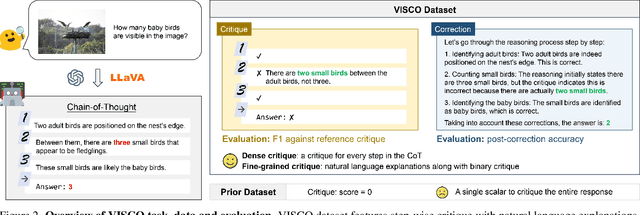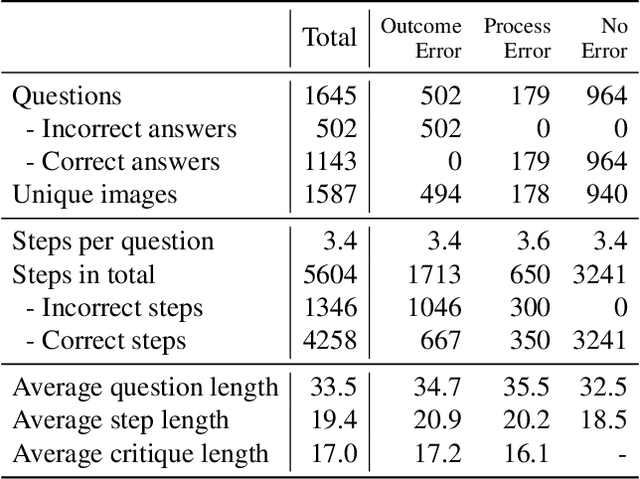Yuheng Ding
VISCO: Benchmarking Fine-Grained Critique and Correction Towards Self-Improvement in Visual Reasoning
Dec 03, 2024



Abstract:The ability of large vision-language models (LVLMs) to critique and correct their reasoning is an essential building block towards their self-improvement. However, a systematic analysis of such capabilities in LVLMs is still lacking. We propose VISCO, the first benchmark to extensively analyze the fine-grained critique and correction capabilities of LVLMs. Compared to existing work that uses a single scalar value to critique the entire reasoning [4], VISCO features dense and fine-grained critique, requiring LVLMs to evaluate the correctness of each step in the chain-of-thought and provide natural language explanations to support their judgments. Extensive evaluation of 24 LVLMs demonstrates that human-written critiques significantly enhance the performance after correction, showcasing the potential of the self-improvement strategy. However, the model-generated critiques are less helpful and sometimes detrimental to the performance, suggesting that critique is the crucial bottleneck. We identified three common patterns in critique failures: failure to critique visual perception, reluctance to "say no", and exaggerated assumption of error propagation. To address these issues, we propose an effective LookBack strategy that revisits the image to verify each piece of information in the initial reasoning. LookBack significantly improves critique and correction performance by up to 13.5%.
Uni-RXN: A Unified Framework Bridging the Gap between Chemical Reaction Pretraining and Conditional Molecule Generation
Mar 14, 2023Abstract:Chemical reactions are the fundamental building blocks of drug design and organic chemistry research. In recent years, there has been a growing need for a large-scale deep-learning framework that can efficiently capture the basic rules of chemical reactions. In this paper, we have proposed a unified framework that addresses both the reaction representation learning and molecule generation tasks, which allows for a more holistic approach. Inspired by the organic chemistry mechanism, we develop a novel pretraining framework that enables us to incorporate inductive biases into the model. Our framework achieves state-of-the-art results on challenging downstream tasks. By possessing chemical knowledge, this framework can be applied to reaction-based generative models, overcoming the limitations of current molecule generation models that rely on a small number of reaction templates. In the extensive experiments, our model generates synthesizable drug-like structures of high quality. Overall, our work presents a significant step toward a large-scale deep-learning framework for a variety of reaction-based applications.
 Add to Chrome
Add to Chrome Add to Firefox
Add to Firefox Add to Edge
Add to Edge